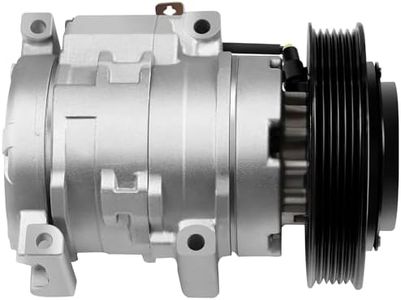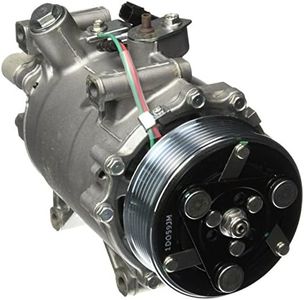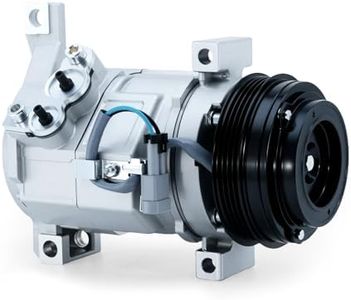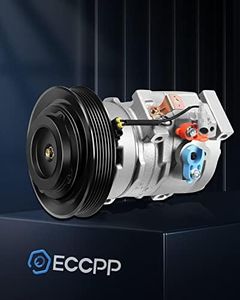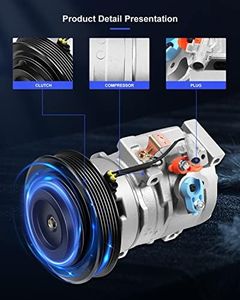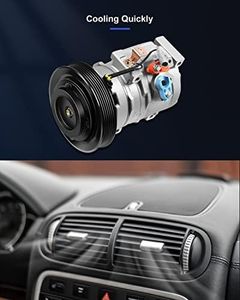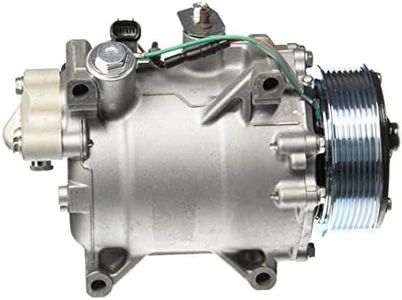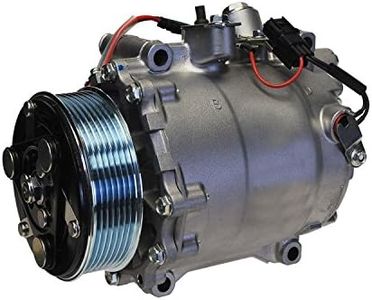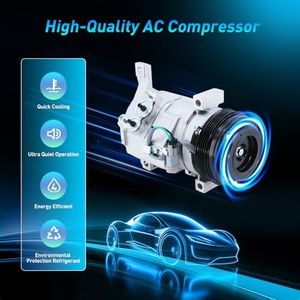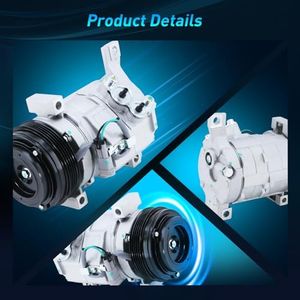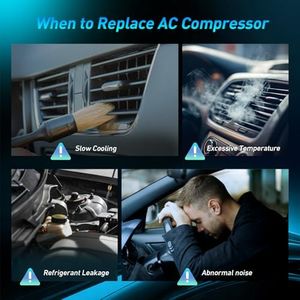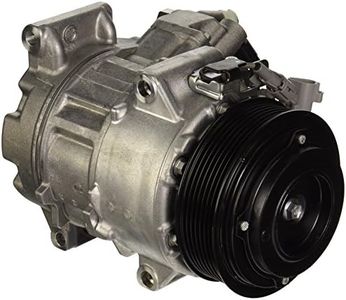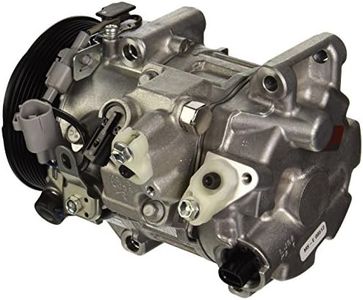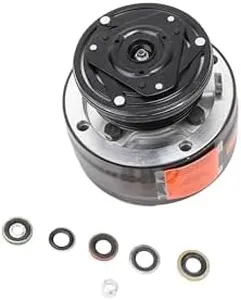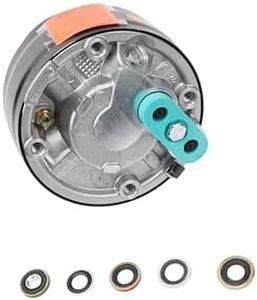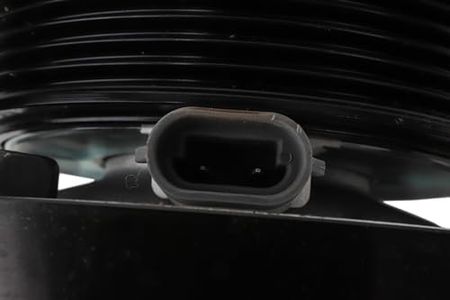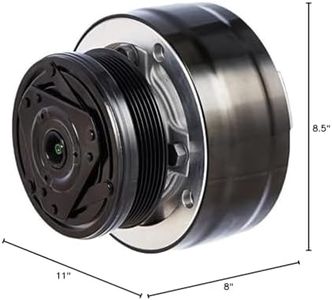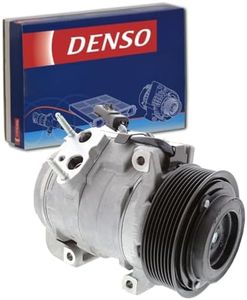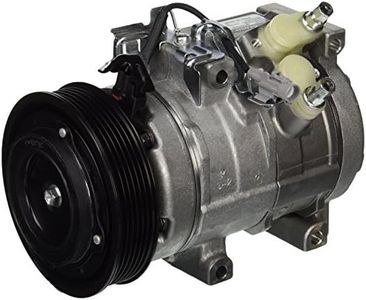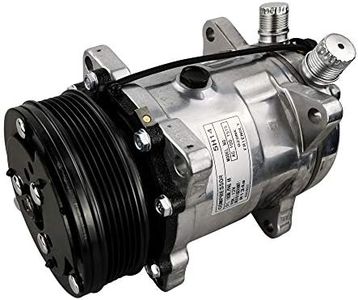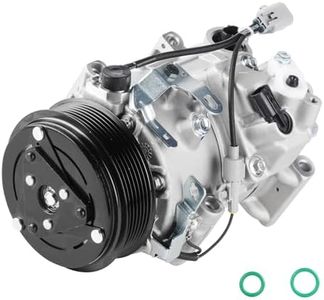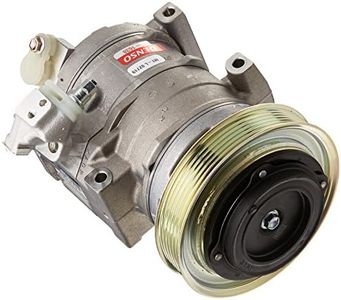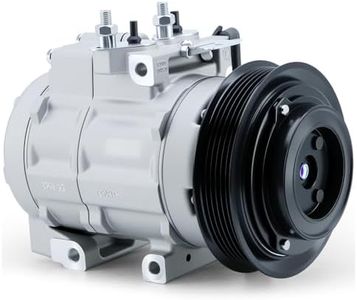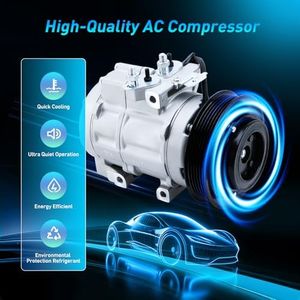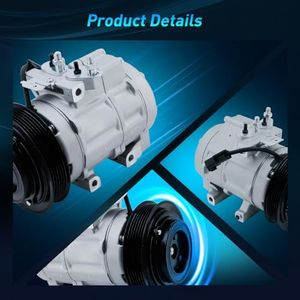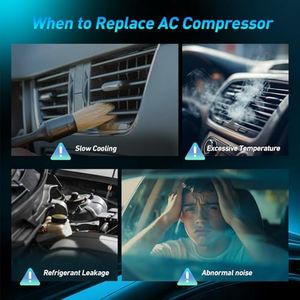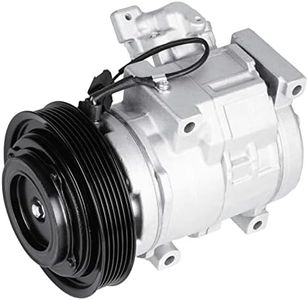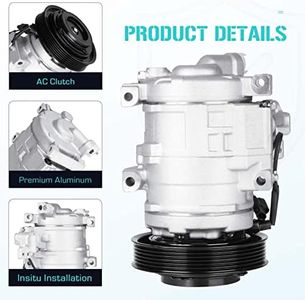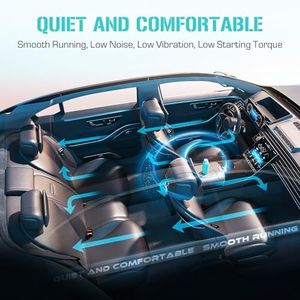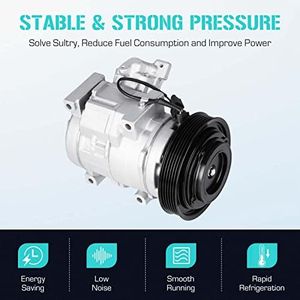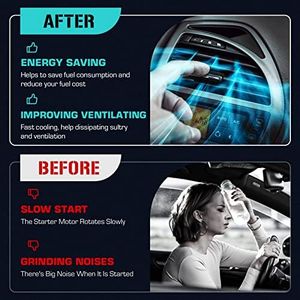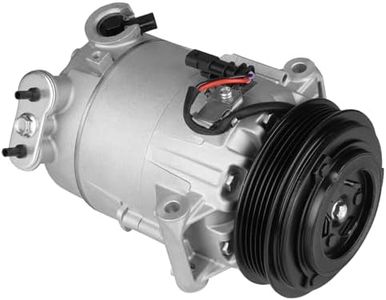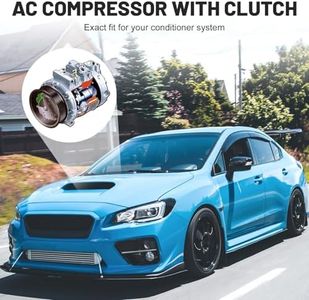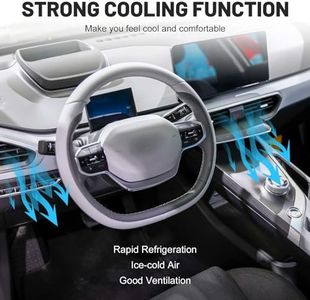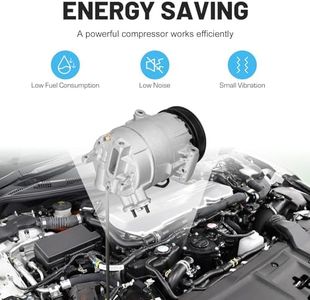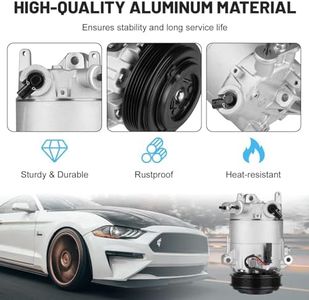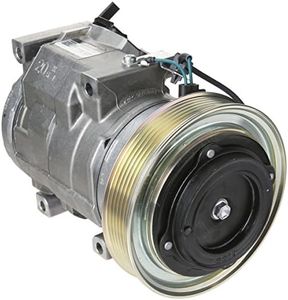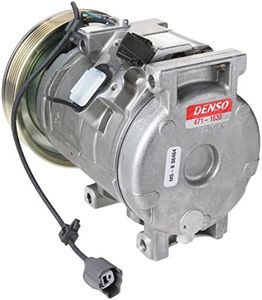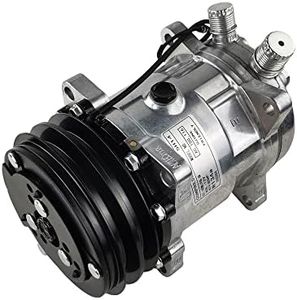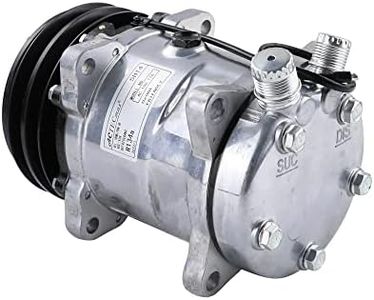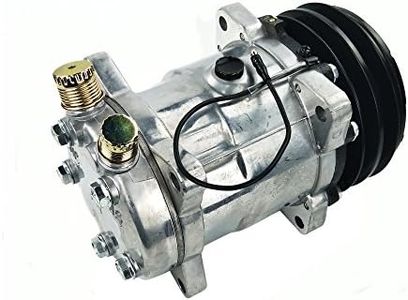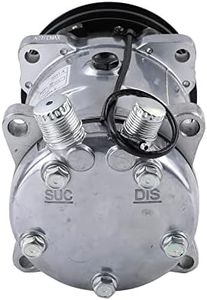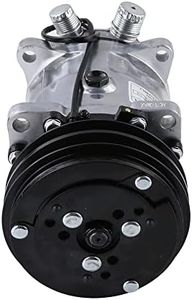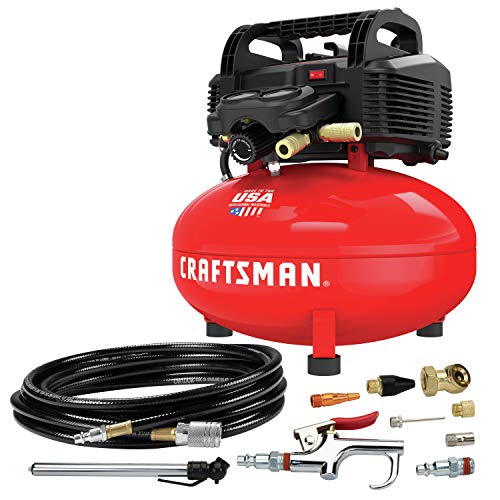10 Best Ac Compressors 2025 in the United States
Winner
ECCPP Air Conditioning Compressor for Toyota Corolla Matrix 1.8L 2003 04 05 06 07 2008 AC Compressor with Clutch 10S15L Rapid Cooling
The ECCPP Air Conditioning Compressor is a direct-fit replacement designed specifically for Toyota Corolla and Matrix models from 2003 to 2008 with 1.8L engines. It uses a 10S15L compressor type and works with R-134A refrigerant, which is standard for many vehicles of that era. This compressor comes pre-filled and pre-lubricated, making installation straightforward without needing additional oil. The build features a sturdy aluminum body that should hold up well over time, suggesting good durability. It includes a clutch and pulley system that matches OEM specifications, helping ensure compatibility and reliable operation.
Most important from
779 reviews
Denso 471-7056 A/C Compressor
The Denso 471-7056 A/C Compressor is designed specifically for vehicle air conditioning systems, making it a vehicle-specific fit for those needing a replacement compressor. One of its standout features is its efficient fuel consumption, which can be a significant benefit for vehicle owners looking to optimize their car's fuel usage.
Most important from
196 reviews
AC Compressor Fit for 2000-2013 Chevy Silverado Suburban 1500 2500 Tahoe GMC Yukon XL 1500 2500, 2001 2002 2003 2004 2005 2006 2007 2008 2009 2010 2011 2012 Air Conditioner Compressor CO 29002C
This BDELI AC compressor is designed specifically for 2000-2013 Chevrolet Silverado, Suburban, Tahoe, and GMC Yukon models, making it a solid fit for owners of these vehicles needing a replacement part. It’s engine-driven and runs on 12 volts, which is standard for automotive air conditioning compressors. The product is portable and relatively lightweight at about 16 pounds, which can aid in installation.
Most important from
28 reviews
Top 10 Best Ac Compressors 2025 in the United States
Winner
ECCPP Air Conditioning Compressor for Toyota Corolla Matrix 1.8L 2003 04 05 06 07 2008 AC Compressor with Clutch 10S15L Rapid Cooling
ECCPP Air Conditioning Compressor for Toyota Corolla Matrix 1.8L 2003 04 05 06 07 2008 AC Compressor with Clutch 10S15L Rapid Cooling
Chosen by 1177 this week
Denso 471-7056 A/C Compressor
Denso 471-7056 A/C Compressor
AC Compressor Fit for 2000-2013 Chevy Silverado Suburban 1500 2500 Tahoe GMC Yukon XL 1500 2500, 2001 2002 2003 2004 2005 2006 2007 2008 2009 2010 2011 2012 Air Conditioner Compressor CO 29002C
AC Compressor Fit for 2000-2013 Chevy Silverado Suburban 1500 2500 Tahoe GMC Yukon XL 1500 2500, 2001 2002 2003 2004 2005 2006 2007 2008 2009 2010 2011 2012 Air Conditioner Compressor CO 29002C
Denso 471-1017 A/C Compressor
Denso 471-1017 A/C Compressor
ACDelco GM Genuine Parts 15-20189 Air Conditioning Compressor and Clutch Assembly
ACDelco GM Genuine Parts 15-20189 Air Conditioning Compressor and Clutch Assembly
Air Conditioner AC Compressor Compatible with 2007-2014 Ford Expedition F-150, 2008-2010 Ford F-250 350 450 Super Duty, F53 & Lincoln Navigator Mark LT CO 10905X 9C3Z19703A 7C3Z19703AA
Air Conditioner AC Compressor Compatible with 2007-2014 Ford Expedition F-150, 2008-2010 Ford F-250 350 450 Super Duty, F53 & Lincoln Navigator Mark LT CO 10905X 9C3Z19703A 7C3Z19703AA
AC Compressor and A/C Clutch Fits for Honda 3.5 3.5L Pilot 2008-2015, Odyssey 2008-2017, Ridgeline 2009-2014, Fits for Acura MDX 3.7L 2007-2013, Replaces CO 10840C
AC Compressor and A/C Clutch Fits for Honda 3.5 3.5L Pilot 2008-2015, Odyssey 2008-2017, Ridgeline 2009-2014, Fits for Acura MDX 3.7L 2007-2013, Replaces CO 10840C
New AC Air Condition Compressor w/Clutch for Chevy Impala 2.5L 2014-2018, Malibu 2.0L 2.5L 2013-2015, Malibu Limited 2016, Buick Regal 2.0L 2.4L 2014-2017
New AC Air Condition Compressor w/Clutch for Chevy Impala 2.5L 2014-2018, Malibu 2.0L 2.5L 2013-2015, Malibu Limited 2016, Buick Regal 2.0L 2.4L 2014-2017
Denso 471-1630 New Compressor with Clutch
Denso 471-1630 New Compressor with Clutch
ACTECmax Universal A/C Compressor with 2PK Clutch SD 508 Style 5H14 R134A V Belt 12V
ACTECmax Universal A/C Compressor with 2PK Clutch SD 508 Style 5H14 R134A V Belt 12V
Recommended lists
Our technology thoroughly searches through the online shopping world, reviewing hundreds of sites. We then process and analyze this information, updating in real-time to bring you the latest top-rated products. This way, you always get the best and most current options available.

